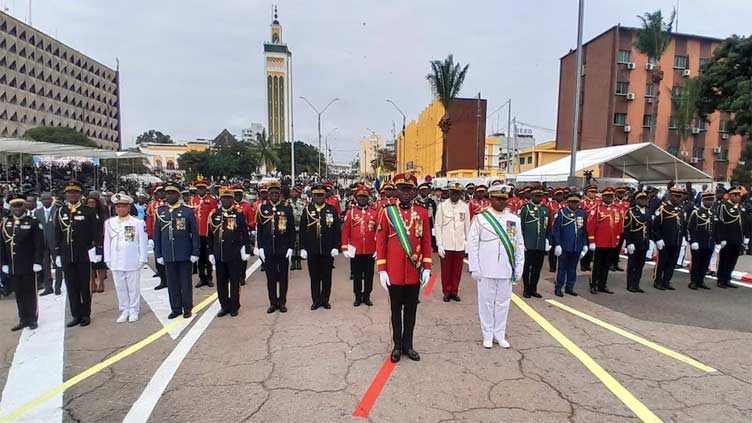Gabon marks year since 'coup of liberation' with celebrations, reform pledges

World
Hundreds gathered in the centre of the capital
LIBREVILLE (Reuters) - A year since a military coup in Gabon ended the Bongo dynasty's 56-year rule, the country marked the anniversary in festive mood this week with celebrations and promises by the ruling junta to step up progress on reforms.
The Gabonese largely welcomed the military's ouster of president Ali Bongo, whose family's poor management of the central African country's oil wealth had led to a stagnant economy and stranded a third of the population in poverty.
Hundreds gathered in the centre of the capital, Libreville, on Friday for official celebrations led by interim president General Brice Oligui Nguema to mark the first anniversary of what is widely referred to as the "coup of liberation" in Gabon.
"The Gabonese have cried so much. He (Nguema) came to wipe away our tears. And today we're happy," said civil servant Edwige Bengone, wearing a t-shirt with the coup leader's photo on it, as brass bands played among cheering crowds.
One year on, the economic outlook remains uncertain and the junta has yet to confirm a date for a promised transition to democracy via the ballot box, but supporters including student Ulrich Yebe said they felt cautiously optimistic.
"In just one year, we can't really judge yet. But given the progress made, we can say that they're on the right track. We're waiting for the end of the transition to see what they've been able to achieve," he said.
CHALLENGES AHEAD
Gabon faces significant challenges. Despite its significant oil wealth, infrastructure across the heavily forested country is poor, it is highly dependent on food imports, and income per capita is lower than it was in the 1970s.

The junta, which calls itself the Committee for the Transition and Restoration of Institutions, has taken steps to improve transparency and budget management.
But a brighter economic outlook will depend on authorities' ability to pivot to a more open and inclusive model of governance, the International Monetary Fund warned in May, saying economic diversification and correcting fiscal imbalances were vital.
The junta has not made sufficient progress to reform the various branches of government as promised, said Geoffroy Foumboula, a prominent Bongo critic, who is now a senior figure in the national assembly.
"After a year, the restoration of institutions is the poor relation of the transition. On this front, we're still very slow," he told Reuters.
In a television address to the nation this week, Nguema appeared to address those concerned about the pace of progress.

"Our work together is not finished. But it is well underway. We have initiated change. And we must continue on this path," he said.
Other criticisms of the junta include the dominance of the military in an ongoing national dialogue, lack of clarity on a timeline for presidential elections, and uncertainty over whether junta members will be eligible to run, said Remadji Hoinathy, a senior researcher at the Africa-focused Institute for Security Studies.
"On the ground, Nguema has actually been quite skilful," he said, referring to the junta's engagement with some opposition factions and civil society. "But the reality in Gabon is that it's very difficult, changing things overnight."


